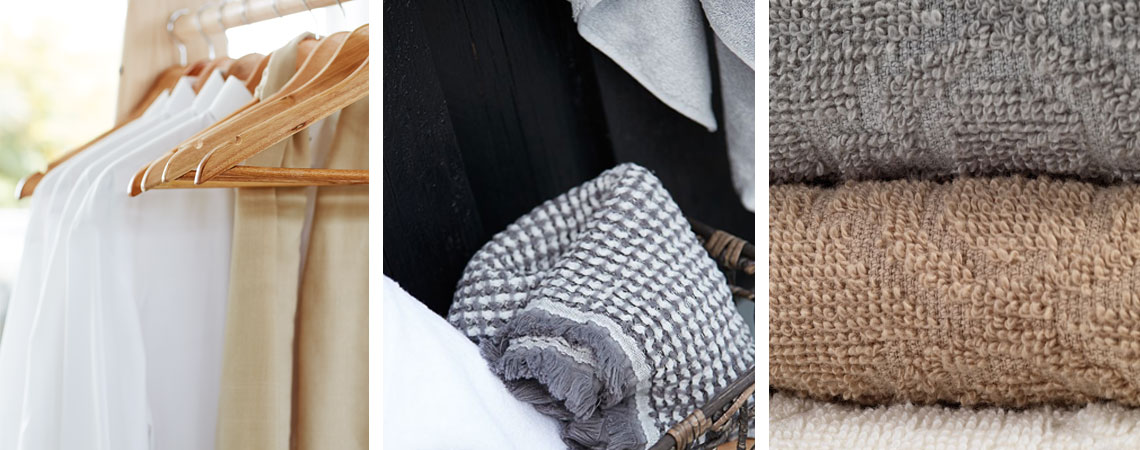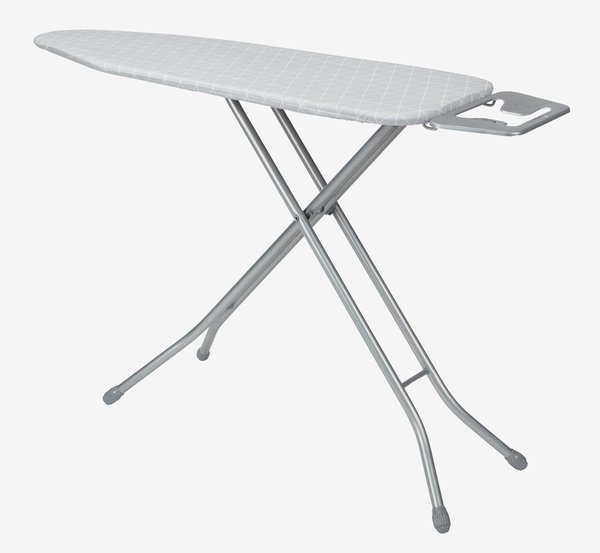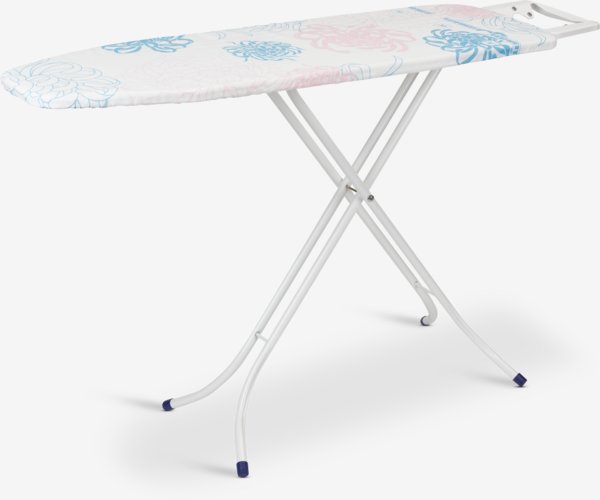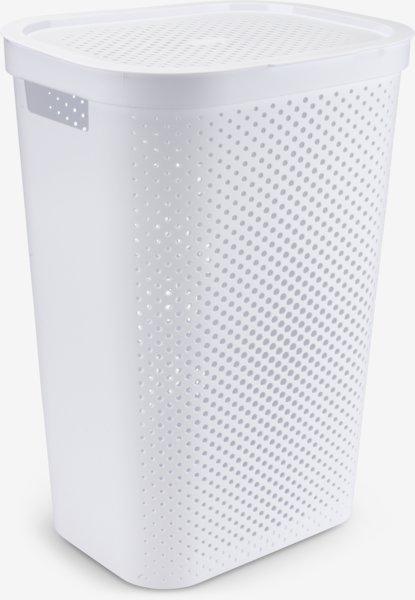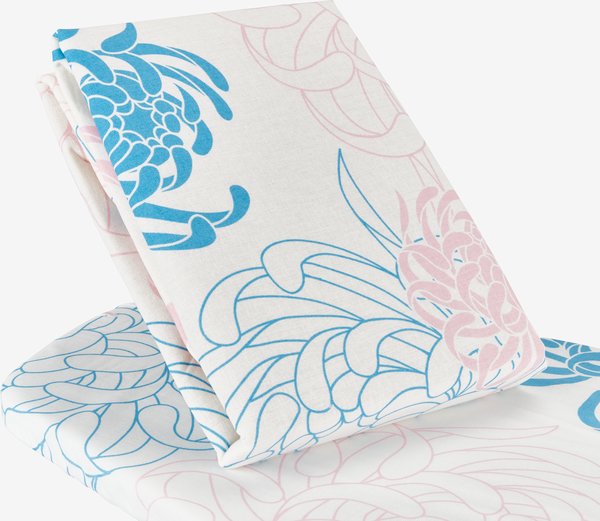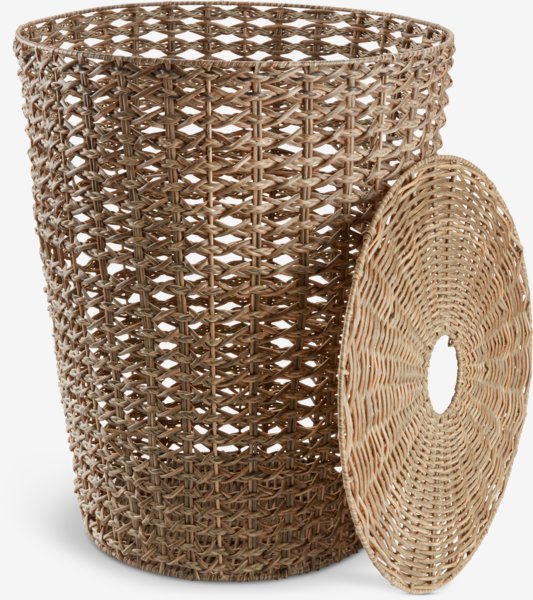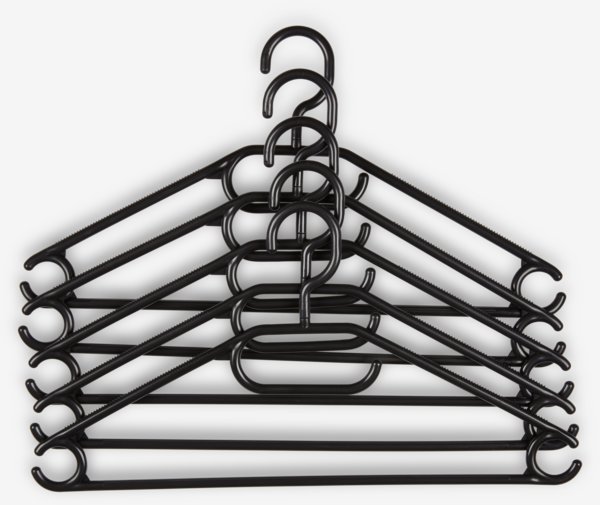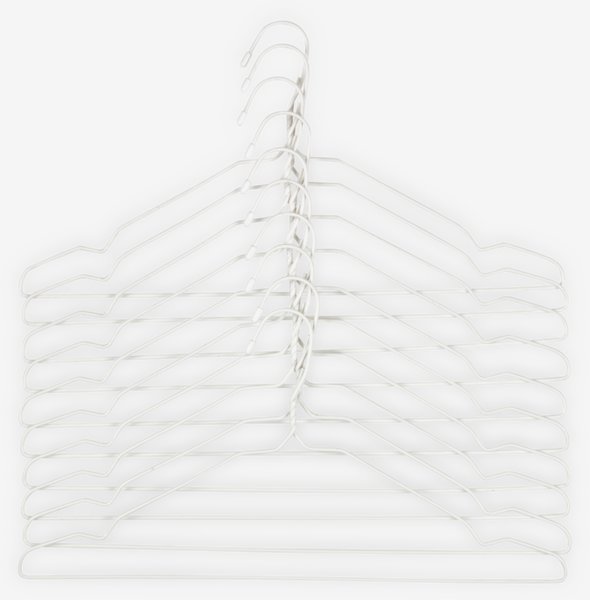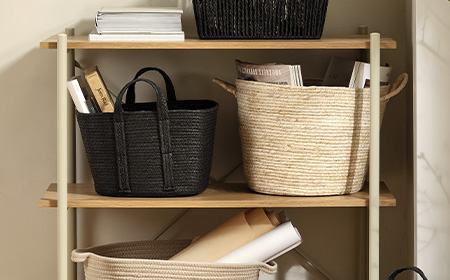The cold and damp autumn and winter months can make drying clothes a real challenge. While experts often advise against drying clothes indoors due to the potential impact on your home's indoor climate, sometimes it's unavoidable when it's raining, snowing, or simply too cold outside.
In this blog post, we'll share 7 essential tips for drying clothes indoors. Read on to learn everything you need to know about safely drying clothes indoors.
1. Avoid drying your clothes in the living room or bedroom
It's best to avoid drying clothes in the rooms where you spend most of your time, like the living room and bedroom. Instead, place the indoor drying rack or indoor clothes airer in the bathroom, especially if it’s already ventilated.
Alternatively, you can set it up in the hallway, utility room, or kitchen. If you choose the kitchen, remember to move the laundry elsewhere while cooking to prevent odors and steam from clinging to it. A hanging drying rack is also a good option if you have space in the bathroom.
2. Give your laundry an extra round of centrifuge
A useful tip is to give your laundry an extra spin cycle to remove more water and moisture. Bedding, towels, and jeans, for example, are made of materials that can easily handle an additional spin.However, it's important to remember that not all fabrics can tolerate this, so be sure to check the care instructions beforehand.
3. Shake your laundry an extra time after it has been washed
Clothes washed on a delicate cycle often retain excess water. You can reduce this by shaking them before hanging them on the drying rack. A quick shake also helps smooth out wrinkles, allowing the clothes to dry faster and with fewer creases.
4. Place your airer in a warm spot
Where you place your indoor drying rack matters a lot. It's a good idea to choose a warmer spot, like in front of a window where sunlight can reach your clothes.
Additionally, periodically moving the clothes around on the rack can help prevent the ones in the middle from being trapped between other wet items. If you have less laundry, hang it on every other line to allow more space between each piece.
5. Watch out for worsening air quality
Drying clothes indoors can worsen air quality and increase dust in your home. Damp clothes can hold up to 2-3 litres of water if they haven't been properly spun. As this water evaporates, it adds humidity and detergent residue to the air. That's why proper ventilation is essential.
6. Create more ventilation and air out your home
Opening windows is the best way to bring fresh air into your rooms. This helps prevent moisture damage and creates a more pleasant and healthy indoor environment. It’s especially important to ventilate thoroughly on days when you have damp clothes drying indoors. Fresh air helps replace the humid, stale air, improving overall air quality.
Remember to turn down the radiator while ventilating and turn it back up afterward. Even just 5 minutes of creating a draft by opening windows in multiple rooms can make a significant difference, allowing the moist air to escape and be replaced by fresh air.
7. Plan ahead so you can dry your clothes while you aren’t home
Drying clothes indoors will naturally increase the humidity in your rooms. To prevent moisture damage, which can lead to allergies and headaches, it's important to take precautions. One effective strategy is to avoid being at home while the clothes are drying. Hang them up in the morning after ventilating the space, then go to work. Ventilate again when you return home.
Can clothes dry indoors?
Yes, clothes can dry indoors effectively with a few simple adjustments. To ensure efficient drying, place your indoor clothes airer in a well-ventilated area, such as near a window or a fan, to enhance air circulation. Keep the room warm and consider using a dehumidifier to manage humidity and speed up the drying process.
You can also arrange the clothes with space between them for better airflow and turn heavier items inside out for more even drying. By following these steps and carefully managing moisture levels, you can successfully dry your clothes indoors, even without outdoor space.
Why not dry clothes indoors?
Drying clothes indoors is certainly possible, but there are a few things to keep in mind to ensure it’s done effectively and to avoid issues. Without proper ventilation, excess humidity can lead to mold growth and musty odors. To mitigate these issues, use a drying rack in a well-ventilated area, such as near a window or fan, and consider using a dehumidifier.
While drying clothes outdoors is often preferred for faster drying and fresher scents, you can effectively dry clothes indoors by taking these precautions to manage moisture and maintain air quality.
What is the best way to dry clothes indoors without a dryer?
The best way to dry clothes indoors without a dryer is to use an indoor drying rack or hanging rack. Place the rack in a well-ventilated area, preferably near a window or with a fan to boost airflow. Spread out the clothes to avoid overlapping, which helps air circulate more effectively.
For thicker items, lay them flat on a towel to prevent stretching. Using a dehumidifier can also help manage humidity and ensure efficient drying while preventing dampness or mold.
Learn more about how you can wash your new towels before using them.
